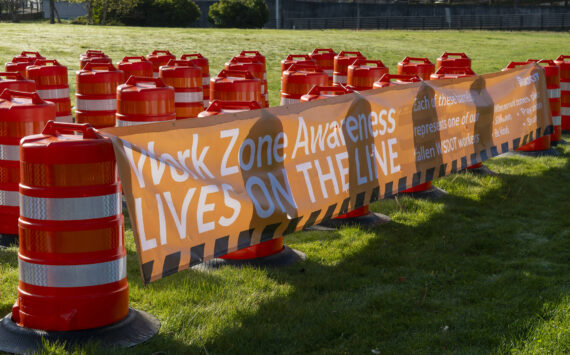Yesterday, the Seattle City Council unanimously passed a resolution calling on the federal government to expand Social Security, the suite of semi-socialized programs that provide stipends and medical coverage to the elderly, disabled, and extremely poor. (See the Social Security explainer video at the bottom for more info.)
The resolution doesn’t do anything beyond formally asking the federal government to pretty-please fix and grow Social Security. But it sure was popular at the Monday council meeting which approved it. Dozens of commenters over 37 minutes of public testimony spoke in enthusiastic support of the resolution, which was sponsored by councilmember M. Lorena González. The first was Nicole Grant, head of the King County Labor Council, who described Social Security as “fundamental to what we fight for…This is about the fundamental security of this society and of our elders in this society—people who work their entire careers so that we can have what we have.”
So what is all the fuss about? Money and fairness, basically. The resolution points out how access to Social Security particularly impacts groups that have traditionally gotten screwed over—women, people of color, and LGBT people (that latter was added by councilmember Lisa Herbold, according to González’s office). The short version of this argument: oppressed people tend to be poor, and poor people tend to need Social Security.
But there’s a problem. Americans’ collective retirement savings have a massive deficit—at least $6.6 trillion, according to the resolution, although other sources say the actual shortfall could be more than twice that much. The Social Security trust funds are in better condition with a $2.79 trillion surplus, but without policy changes they’ll have to start paying only partial benefits in 2034. Bottom line: because income inequality has ravaged Americans’ ability to save for their own retirements, the need for Social Security will likely rise in coming decades—and the funding to pay for it is unsustainable.
Don’t panic yet, though: that’s a long-term financial problem that isn’t expected to come to a head until the 2030s, meaning that it can be obviated by smart policymaking in the meantime. As Michael Hiltzik of the LA Times has written, “That [mid-2030s] deadline, in truth, is a moving target. It’s based on long-term projections, which become more uncertain the further out you look. The estimated date is very sensitive to forecasts of immigration, wage and economic growth, and birth and death rates, all of which are uncertain.”
In other words, Social Security is fixable. And the council resolution has some thoughts on exactly how to fix it. First, eliminate the income cap on taxes. Currently, the 12.4 percent payroll tax (split evenly between employees and employers at 6.2 percent each) that funds Social Security is capped at $118,500, meaning that rich workers are taxed at much lower rates than poor and middle class workers. Lifting the cap would bring in more money from taxpayers who can afford it the most. Second, council proposes raising the Medicare payroll tax from 1.45 percent to 2 percent.
Again, these are just suggestions, since city council has no authority over federal Social Security policy. But it does have a tiny bit of symbolic influence. Having the formal public support of a major city gives Social Security advocates in the other Washington greater credibility when they make their case.
An earlier version of this article mixed up Social Security’s balance with the deficit in overall private retirement savings. The latter is estimated at $6.6 billion, while the combind Social Security trust funds had a positive balance of $2.79 trillion as of July 2015. Without policy changes, though, Social Security will still run out of money in the 2030s.








